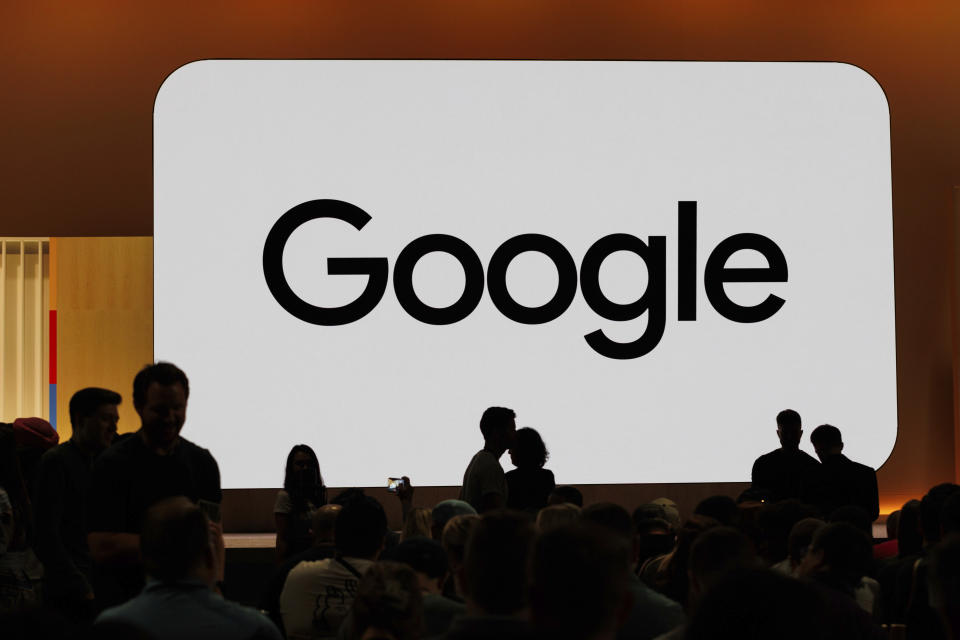Google (GOOG, GOOGL) is staring down what could be the biggest threat to its search and advertising business after a US court ruled the company operates as an illegal monopoly. Google will appeal the decision, but if the tech giant fails to overturn it, Judge Amit Mehta could require the company to give up its distribution deals with smartphone makers Apple and Samsung.
Google currently pays Apple (AAPL) and Samsung billions of dollars to make Google Search the default search engine on its devices. In exchange, Google gets its search platform in front of hundreds of millions of users around the world.
Access to a massive trove of data enables Google to sell targeted ads against the users that power its enormous advertising empire. If Mehta kills those deals, Google risks losing those users and their precious data.
And if Google loses access to the data that powers its dominant position in the ad market, the company may need to return to advertising itself.
“I think that they would start a campaign that would advocate for people to choose Google,” explained Deepwater Asset Management managing partner Gene Munster. “I think that they would save $25 billion. And I think the biggest potential loser in the whole conversation is Samsung and Apple.”
Google’s distribution agreements cost billions
According to information provided via Mehta’s ruling, Google paid Apple $20 billion in 2022 to make its Google Search the default search option on its various devices. That’s double what the company paid the iPhone maker in 2020. Samsung, meanwhile, took home $8 billion over 4 years as part of Google’s exclusivity deals, according to Bloomberg.
If Google is forced to abandon those agreements, it would immediately begin saving on its traffic acquisition costs (TAC), money it pays out via agreements like those it has with Apple and Samsung, among others. Google paid out $50.8 billion in TAC in 2023, up from $48.9 billion in 2022 and $45.5 billion in 2021.
But there’s a potential downside to that.
According to Mehta’s ruling, Google performed internal modeling in 2020 that found it would lose 60% to 80% of search volume on Apple’s iOS devices if its search engine was replaced as the default search option.
Losing that search volume would cut $28 billion to $32 billion from the company’s bottom line. In 2020, Google brought in $182.5 billion in total revenue. That means if Google lost that iOS traffic it could see revenue drop 15% to 17%.
For Apple, though, the story could be even more challenging.
Losing $20 billion per year would put a dent in the company’s bottom line, slicing off as much as 25% of Apple’s Services revenue as of 2022.
Apple generated $394.3 billion in revenue in 2022, which puts the Google agreement at about 5% of the company’s revenue for that year.
Samsung wouldn’t take as big of a hit if it lost out on Google’s payments, with $8 billion paid out to the company over four years, or roughly 1% of the company’s total 2023 revenue of $194 billion.
But losing that traffic and revenue is far from a certainty.
The European Union’s antitrust enforcer, the European Commission, currently requires Apple and Android device makers to offer European users special choice screens that allow them to choose their default web browsers and search engines as part of a piece of legislation called the Digital Markets Act.
Google has been offering the option since March 2024, and according to Statcounter, the company’s search engine market share fell from 96.08% in March to 95.82% in June before rising again to 95.97% in July.
So what happens if Google is forced to provide similar choice screens in the US?
“I think Google would be focused … on more advertising of ‘We’re such a wonderful search engine’ and ‘Look how easy it is to install us, even if something else has been installed on your recently purchased device as a default,’ ” explained NYU Stern School of Business economics professor Lawrence White. “I can imagine lots more of that kind of advertising.”
After all, the company is easily the most recognizable name in the search business and its product has become a verb — people Google information on the web; no one is Binging it.
Email Daniel Howley at [email protected]. Follow him on Twitter at @DanielHowley.
Read the latest financial and business news from Yahoo Finance.












